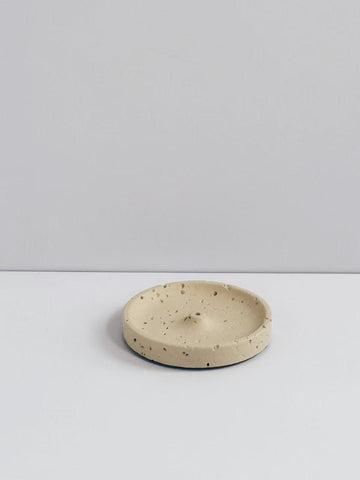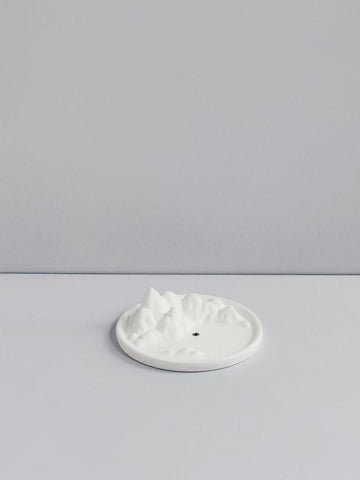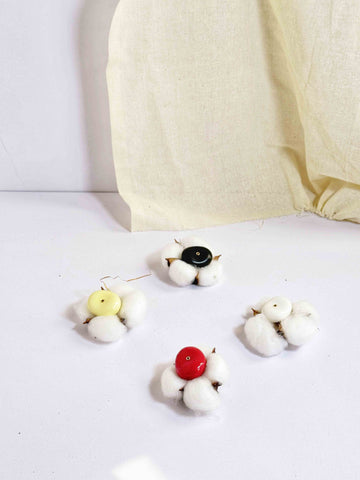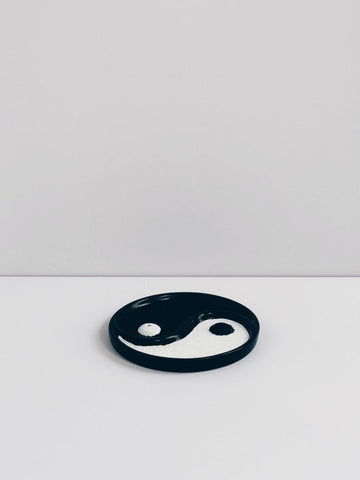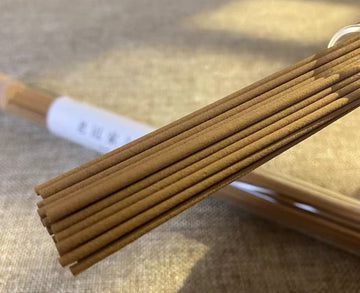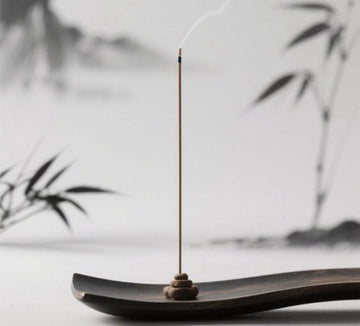In recent years, incense has steadily gained popularity beyond its traditional roots, particularly among wellness enthusiasts in the West. As more people seek mindfulness, relaxation, and spiritual clarity, the humble incense stick has become a go-to companion. Yet, for beginners stepping into this fragrant world, a recurring question surfaces: What is the best incense for beginners?
This guide offers an in-depth answer, cutting through the marketing noise to provide a clear, trustworthy, and expert-driven recommendation for newcomers. From understanding incense composition to choosing the right fragrance profile, the goal is to help beginners make informed, healthy, and rewarding choices—starting with pure, natural incense.
Why Natural Incense Is Non-Negotiable for Beginners
When exploring incense for the first time, the single most important rule is this: Start with pure natural incense only.
Unlike candles or perfumes, incense is burned in close proximity and often in enclosed spaces. This makes the cleanliness of its ingredients critical. Unfortunately, the market is flooded with synthetic or chemically enhanced options. These often contain artificial fragrances, combustion accelerants, or essential oils with questionable purity—all of which contribute to a strong, overpowering smell and, in some cases, adverse health effects such as headaches, nausea, or respiratory discomfort.
Beginners—many of whom have spent years surrounded by perfumes, air fresheners, and synthetic body sprays—may already have a dulled olfactory system. As a result, they may struggle to detect the subtle layers present in high-quality incense. This is precisely why starting with light, clean, and elegant aromas is crucial.
The goal is not to flood the senses but to reawaken them gently.
The Problem with Chemical Incense
Chemical incense typically has a sharp, pungent aroma, often resembling over-applied perfume. This intensity is due to additives like synthetic musk, phthalates, or chemically isolated essential oils. These substances are designed to maximize throw, but at the cost of subtlety and comfort.
More alarmingly, prolonged exposure to chemical incense can desensitize the nose further, making it even harder to appreciate natural fragrance notes. For beginners, this is a serious setback—it’s like learning to enjoy wine by starting with artificial grape juice.
In contrast, pure incense made from unadulterated woods, herbs, and resins offers a quieter, more refined experience. The aroma unfolds slowly, inviting contemplation and deep sensory engagement.
Choosing the Right Type of Incense Stick
For those new to incense, it’s essential to choose not just the right fragrance but also the right format. Incense comes in many forms—cones, coils, resin for burning on charcoal—but the most beginner-friendly by far is the stick format, especially coreless sticks (also known as Japanese-style or Chinese-style incense without bamboo).
Why Coreless Sticks Are Better for Beginners:
-
No bamboo smoke: Sticks with a wooden core (like many Indian incense varieties) produce a sharp burning smell that can overpower the fragrance.
-
Even burning: Coreless sticks burn uniformly, producing a consistent aroma without sudden spikes.
-
Milder scent projection: Perfect for smaller rooms and sensitive noses.
Understanding “Single Note” vs. “Blended” Incense
When just beginning, it's wise to start with single-ingredient or two-ingredient incense. These are called “single note” varieties and typically include only one or two natural materials, such as sandalwood or agarwood (also known as oud).
Why single-note incense is ideal for beginners:
-
Helps train the nose to distinguish raw material characteristics.
-
Avoids confusion caused by too many layered notes.
-
Easier to detect the natural evolution of scent as it burns.
Once the user becomes familiar with base woodsy notes, they can graduate to blended incense, which might combine agarwood with herbs like lavender, frankincense, or patchouli, creating more complex and layered scent experiences.
Top Recommendations: Best Incense Types for Beginners
Here are the most beginner-friendly natural incense types, based on purity, aroma clarity, and tradition.
1. Sandalwood (Santalum album)
A soft, warm, and creamy wood scent. Universally soothing and widely used in meditation and yoga.
-
Best for: Evening relaxation, mindfulness practice.
-
Character: Mellow, woody, sweet.
2. Agarwood (Aquilaria spp.) / Oud
Highly prized in both Eastern and Middle Eastern traditions. Agarwood offers a rich, complex aroma—a mix of wood, resin, and slight sweetness.
-
Best for: Quiet contemplation, spiritual rituals.
-
Character: Deep, slightly smoky, balsamic.
-
Beginner tip: Choose a milder agarwood blend or regional varieties like Vietnamese or Hainanese agarwood, which tend to be softer.
3. Cedarwood
Sharp, dry, and resinous. Invokes the image of ancient temples and forest trails.
-
Best for: Focus and clarity, especially during work.
-
Character: Crisp, woody, dry.
4. Blends like Agarwood + Lavender
A sophisticated way to transition into more complex aromas. The floral top note softens the woodiness of agarwood.
-
Best for: Evening unwind routines, light meditation.
-
Character: Layered, aromatic, floral-woody.
Recommended First-Time Experience: Dream of the Dynasty
One of the most elegant beginner-friendly incense sticks on the market today is Dream of the Dynasty by Memoricall.
Crafted with a minimalistic blend of pure sandalwood and aged agarwood, it is:
-
Completely natural – free from chemical fragrances, essential oils, or synthetic binders.
-
Coreless – offers a clean burn with no bamboo interference.
-
Elegant and mild – designed to showcase the true nature of premium wood incense.
This stick is perfect for those who are new to incense and want to appreciate it in its most authentic form—a soft, personal aroma that surrounds you quietly without demanding attention.
Learning to Appreciate Subtle Fragrance Layers
Beginners may initially find that incense—especially natural incense—smells like little more than “burning wood” or even “smoke.” This is entirely normal.
In fact, this perception highlights the effect of years of exposure to strong artificial fragrances, which can dull the olfactory system. Natural incense, by comparison, is low-key, layered, and complex.
With repeated use and quiet observation, most users begin to notice:
-
The sweetness in sandalwood.
-
The resinous undertone in agarwood.
-
The floral lift in lavender-infused blends.
-
The transition of scent as the stick burns from tip to end.
This process of rediscovery is part of the joy. Patience is key—natural incense rewards slowness and reflection.
Cultural Context: East Meets West
In many Asian cultures, particularly in Japan and China, incense holds a revered place. It is more than fragrance; it is a spiritual practice, a cultural expression, and a meditative art. The Japanese even have a term, Kōdō (香道), meaning “the Way of Incense,” which reflects the ceremonial and aesthetic appreciation of incense.
In contrast, incense in the West is still a developing niche—often misunderstood or conflated with mass-market “hippie” brands from the 1970s.
Yet as more individuals pursue inner peace, minimalism, and sensory mindfulness, the West is now slowly awakening to incense’s refined beauty. Clean, natural incense is poised to become a pillar of this transformation.
Incense vs. Candles vs. Perfume
It’s tempting to lump incense into the same category as candles or perfumes—but that would be a mistake.
-
Perfumes are made to announce your presence to others.
-
Candles scent an entire room, often aggressively.
-
Incense is different. It is meant to enhance your private space, to bring you back to yourself, not broadcast to the world.
With incense, the fragrance is personal. It lingers just enough for those within your immediate circle to notice. It’s subtle, contemplative, and shared quietly.
Final Advice: How to Try Incense the Right Way
-
Start in a calm, quiet space. No music, no distractions. Let the aroma unfold naturally.
-
Use a clean burner—ceramic or stone is ideal.
-
Burn 1 stick at first. This is enough for a 30-45minute session.
-
Don’t walk around. Sit with the incense. Observe how it makes you feel.
-
Use your breath. Inhale gently through the nose—don’t sniff like perfume.
-
Take note of how you feel afterward. Calm? Awake? Thoughtful? Let this guide your next purchase.
The Beginner’s Journey Begins with Simplicity
So, what is the best incense for beginners? The answer is simple: a pure, single-note, natural incense made from sandalwood or agarwood. Free from synthetic additives. Free from noise. Free from expectations.
It is in this quiet purity that incense reveals its power—not just as a scent, but as a practice.
Beginners are encouraged to embrace the journey slowly. Trust the nose, even if it seems dull at first. With time, the scent will bloom—and so will the appreciation of this ancient, beautiful art.
Those ready to begin this journey should explore curated, beginner-friendly options like Dream of the Dynasty, which serve as a gentle guide into the fragrant world of natural incense.

